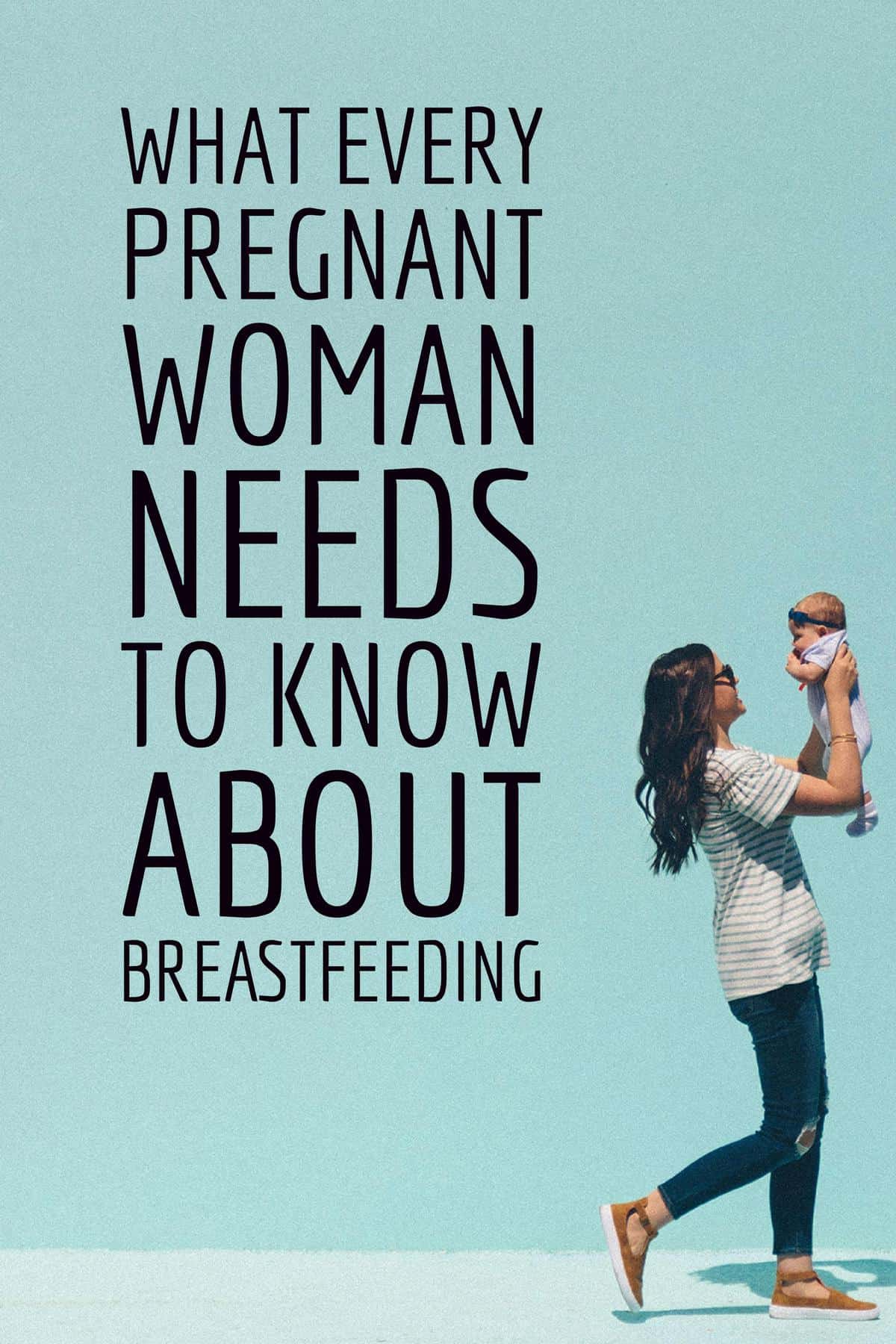
This is breastfeeding 101! Your pregnancy is a great opportunity to prepare yourself and maximize your breastfeeding success. Learn from a breastfeeding expert, and hear from experienced moms who wish they knew this before they started breastfeeding. Read part 1 and part 2 here.
9) Just say “no”…..to too many visitors!
Everyone you know and love will want to meet your new baby. You’ll probably be proud and excited to show the newborn off! As good-intentioned as you and your visitors may be, a flood of visitors may not be in the best interest of establishing your breastfeeding relationship. As mentioned in part 2, learning this skill takes time!
Here is an alternative plan to balance your need to establish breastfeeding, your household’s need for the necessities of life, and your desire to have your family and friends share this time with you.
what to do: create a visitation schedule
People will often want to bring food and help out the family of a newborn baby. Instead of being flooded with a bunch of people all at once, create a schedule! Even better, designate someone close to you to create one on your behalf, since babies don’t exactly arrive when predicted and you’ll be busy as soon as the baby is born. Let everyone know ahead of time who to contact to sign up!
In exchange for meeting a cute baby, ask your visitors to do two things:
- Bring a meal: an easy way to organize the schedule is to use the Meal Train website. Your designated person can create a schedule for the first couple of weeks and include any dietary restrictions/meal preferences for your family.
- Complete a cleaning task: I heard about this tip when I worked in public health. No doubt you’ll start to notice things around your house that you wish you could do: maybe it’s the dishes, or cleaning the washroom, sweeping the entrance, doing a load of cloth diaper laundry, etc. Keep a pad of paper nearby and write each of these things down as you notice them. Then when a visitor comes they can just look at the list and choose something to help you out. That way you don’t have to directly ask someone to do something, which undoubtedly can feel awkward for a lot of people!
Just remember, people will WANT to help you, so don’t feel bad about asking for some help with meals/cleaning and the time you need to work on breastfeeding.
“[don’t] let yourself be overwhelmed with visitors (this is where I needed my husband to say no for us). Apart from the first two days of very limited visitors, we kept the rest of the week to ourselves. No visitors. No outings. No extra stress. Really, really wish I would have done that with my first.” – Kelsey
“I wish I had known that, during the newborn phase when you’re working hard to establish breastfeeding, it’s totally ok to choose not to go to this family gathering or that social event, and to arrange time boundaries with visitors. There was this pressure to let everyone see the baby and to be out and about. With my second, we chose to nest the first couple of weeks and limit who could come for how long, and that helped me to be more relaxed in establishing breastfeeding. Choosing to have visitors who were life-giving, and to say no to those who are draining helped me in that newborn nursing time. It helped a lot to give myself permission to embrace the nesting and not rush past that alternate reality of life with a newborn.” – Ashleigh

10) You will drink copious amounts of water
Since a lot of fluid will go towards making breastmilk, your fluid needs are going to skyrocket! Make sure you have a water bottle you can use with one hand close by at all times!
“Place bottles of water everywhere you might nurse. Everywhere. Don’t be out of reach of water. I couldn’t go a full feeding without drinking.” – Lisa
“[I wish I knew] how STICKY me and baby would be! Maybe it’s just us, but with coming on/off the breast to burp, and leaking breasts, it’s unreal how sticky we get. – Kaila

11) Above all, breastfeeding doesn’t trump a mother’s mental health
Dr. Jack Newman states that 92% of mothers wish to breastfeed. A Statistics Canada survey shows that 89% of mothers initiate breastfeeding, but only 51% of mothers are exclusively breastfeeding at 4 months, and 26% at 6 months.
My motivation for writing this series on breastfeeding is to help those 92% of women who would like to breastfeed but end up coming against obstacles that they didn’t expect. Knowledge is key!
However, as my friend and Dietitian colleague, Nita Sharda, wrote in her breastfeeding story, breastfeeding doesn’t trump a mother’s mental health! Sometimes breastfeeding success comes with hard work and a lot of time. Some women are fortunate and have a wonderful support network that allows them the luxury to dedicate their time and effort to establish breastfeeding when obstacles arise. Other women may not. Some women experience postpartum depression and bottle feeding may be in their best interest. Some women simply choose to feed formula. There are a myriad of reasons for choosing the best way to feed your baby. Your value and worth as a mother does not depend on whether you breastfeed!
[x_pullquote type=”left”]Your value and worth as a mother does not depend on whether you breastfeed![/x_pullquote]
“With both of my babies I have not been blessed by the milk truck, and have had to supplement and try and increase my supply. With my daughter I tried to breastfeed/ increase my supply for 2 months before realizing it was more detrimental for me mentally to keep up the routine of breastfeeding, than finishing with formula and pump in between feedings.” – Krista
“Breastfeeding doesn’t define if you’re a good mother or not. How much milk you have isn’t a scale of how great a mom you are either. The love you have and grow in for your child is way more important than how your baby gets fed. As a mom of 5 with varying degrees of breastfeeding and a massive milk supply, I had no reason not to feel like a “good mom” based on that but I still didn’t feel like a great mom.” – Mandy from Manitoba
“It’s always good to keep in mind and be prepared that not every goal we want to do for our new borns will necessarily be a reality and to know its okay if it doesn’t happen and that you’re not alone and not to beat yourself up over it, as there is always other options that are very good for them too! As much as I still wish my son was a breastfed baby he is still the most healthy, smart and energetic little bundle of joy and definitely is my world!” – Lindsay
“I wish I felt less pressure to breastfeed. I couldn’t get my second to take a bottle at all and felt trapped by her (harsh maybe). At 6 mo her growth slowed, I was losing weight (below pre-pregnancy) and she was refusing solids from me. I was super stressed. Ended up going on a mental health vacation (hospital) and she was transitioned cold turkey to formula. She and I are doing well now but I wish I hadn’t been so set on breastfeeding. I breastfed my 1st to 11 mo no issues… every kid is different!” – Jessica
“If I could have given myself advice, it would have been to figure out what I needed in order to take care of myself properly; whatever that looked like. I remember friends telling me they were worried about my well being and I always brushed them off. I didn’t suffer from postpartum depression but I definitely don’t think back to those first several months fondly. I wish I’d given myself permission to really think about whether the situation was working for me the way it was going. If I could turn back time and really listen to that advice, I think both my daughter and I would have enjoyed those first six months a lot more.” – Nicole from Vancouver
“I wish I had known that not everyone feels that breastfeeding is a positive bonding experience. I breastfed both my boys, but didn’t enjoy it they way I thought I “should”. It created feelings of guilt and resentment. I’m still glad I did it, but I wish that my expectations about the experience had been lower” – Natalie
“I wanted to exclusively BF but when I delivered she was a week early and I wasn’t producing enough. Based on our schooling and the fact that I used to work in the NICU, I was a strong advocate for breastfeeding. Unfortunately, within a week after delivery, she had dropped 11% of her BW and was on the cusp of being jaundiced. I had to use formula and I remember crying because I felt inadequate. After a week of bottle feeding formula, (and pumping), my milk finally came in and she wasn’t super attached to the bottle so I was able to breastfeed and hubby could bottle feed so that I could rest. New moms-IT IS OKAY TO FORMULA FEED because FED IS BEST.” – Natalie from Calgary
“I wish my midwife would have told me that formula feeding could have been an option. They didn’t even mention it… like it would be toxic or something.” -Anonymous

12) To end with a little humour… breastfeeding can be chaotic!
“I wish I would have known that breastfeeding can be messy and chaotic. You usually see pics of mom and baby latched and nestled in a chair, all is calm. I have had many moments like that but there are also many moments where my 2 babes wriggled, kicked and at times fought the feeding. Milk would be dripping and spraying everywhere. And with the second child (who is currently 6m) they get distracted by the older child or you are chasing after the older child while trying to feed. Can be chaotic at times!” – Orysha
Well, I hope the advice and stories here have left you feeling more prepared and empowered to take on the role of a breastfeeding mama! If it’s important to you, it’s totally worth it to explore all the help you can get if you’re faced with challenges. The way you feed your baby doesn’t define or limit your ability to bond with your baby, nor does it determine whether you’re a good mom. No matter the outcome, what’s important is a nourished baby who knows their mama loves them.
[share title=”Share This Article” facebook=”true” twitter=”true” google_plus=”true” linkedin=”true” pinterest=”true” reddit=”true” email=”true”]


Leave a Reply